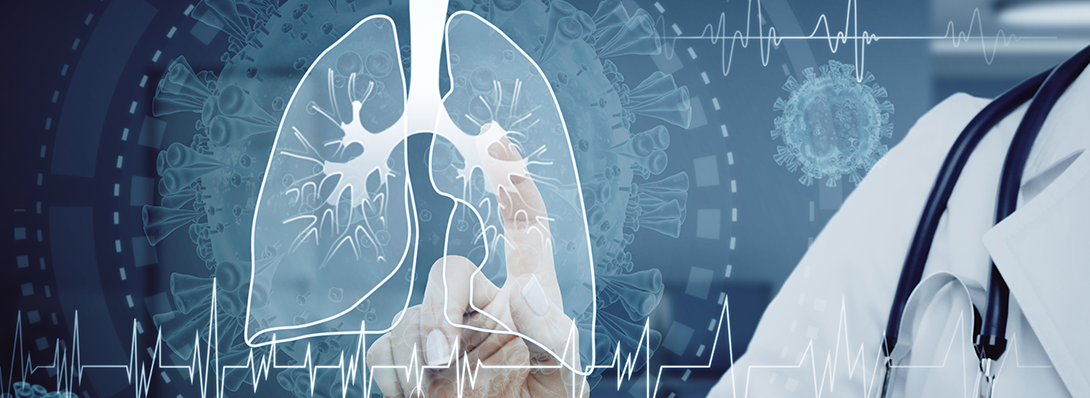Welcome to Apollo Cancer Centres, here we prioritize your health and well-being. In this post, we'll delve into the importance of lung screenings, the various types of lung tests available, and the significance of raising awareness about lung cancer. Our goal is to empower you with knowledge so that you can take proactive steps to safeguard your lung health and stay informed about lung cancer risks.
Why Are Lung Screenings Important?
Lungs play a vital role in breathing and oxygen exchange within our bodies. Early detection of lung-related issues, including lung cancer, is crucial for prompt intervention and better treatment outcomes. Lung screenings are especially important for individuals with risk factors such as smokers, former smokers, and those exposed to environmental hazards like pollution or certain workplace toxins.
Identifying Symptoms Suggesting the Need for Lung Screening
Persistent Cough: If you have a cough that persists for several weeks, it's essential to get it checked. While coughs can be caused by various factors, it's wise not to ignore this symptom, as it could be an indication of lung problems, including lung cancer.
Shortness of Breath: Feeling breathless, even with minimal physical activity, might suggest an underlying lung issue that requires investigation, including potential lung cancer.
Chest Pain: Chest pain can be linked to multiple conditions, including lung-related problems and lung cancer. If you experience chest discomfort, especially when breathing deeply or coughing, consider getting screened.
Unexplained Weight Loss: If you notice significant and unintentional weight loss without any apparent cause, it may be a sign of an underlying health issue, including lung cancer.
Chronic Respiratory Infections: Frequent respiratory infections, such as bronchitis or pneumonia, might indicate compromised lung health, warranting further evaluation for possible lung cancer risks.
Types of Lung Screenings and Lung Tests
Chest X-rays: Chest X-rays are a common initial screening tool for lung-related issues. They can reveal abnormalities such as masses, nodules, or fluid buildup in the lungs, which may be early signs of lung cancer.
CT Scans: Computed Tomography (CT) scans provide detailed images of the lungs, enabling healthcare professionals to detect smaller abnormalities and assess lung health more comprehensively. They are especially valuable in identifying lung cancer at an early stage.
Spirometry: A spirometry test measures lung function and helps diagnose conditions like asthma and chronic obstructive pulmonary disease (COPD). While not directly screening for lung cancer, spirometry can identify lung issues that may require further investigation.
Bronchoscopy: This procedure involves inserting a thin, flexible tube with a camera into the airways to inspect the lungs and collect tissue samples for further analysis, aiding in diagnosing lung cancer and other lung diseases.
PET Scan: Positron Emission Tomography (PET) scans are useful in determining whether abnormalities detected in other tests are cancerous or benign. PET scans are commonly used to detect lung cancer and assess its stage.
When and Why to Consult a Doctor After Lung Screening or Test Results?
Abnormal Results: If your lung screening or test results indicate abnormalities or potential health issues, including suspicious findings for lung cancer, it's crucial to consult a doctor promptly. Early detection can lead to more effective treatment options for lung cancer.
Worsening Symptoms: If you notice a progression or worsening of the symptoms mentioned earlier, seeking medical advice is essential to prevent further complications, especially when lung cancer is suspected.
Concerning Radiology Reports: In case the radiology report from your screening raises any concerns, a medical professional can help interpret the findings and recommend appropriate next steps, including further evaluation for lung cancer.
Family History: If you have a family history of lung-related diseases or lung cancer, it's prudent to discuss this with a doctor, as you might have a higher risk of developing similar conditions.
Peace of Mind: Sometimes, even with normal results, you may still have lingering concerns about your lung health or lung cancer risks. A doctor can provide reassurance and answer any questions you may have.
Lung Cancer Awareness: Know the Risks and Be Informed
Lung cancer is a serious disease that affects millions of people worldwide. Smoking is the most significant risk factor for lung cancer, and quitting smoking is the single most effective way to reduce the risk of developing the disease. Additionally, exposure to secondhand smoke, radon, asbestos, and other environmental pollutants can increase the risk of lung cancer. Raising awareness about these risks is essential for early intervention and prevention.
Summary
Your lung health is of utmost importance, and early detection is key to addressing potential issues effectively, including lung cancer. At Apollo Cancer Centres, we encourage regular lung screenings, especially for individuals with risk factors. If you experience any symptoms or have concerns about your lung health or lung cancer risks, don't hesitate to consult our experienced healthcare professionals. Remember, a proactive approach to lung health and staying informed about lung cancer can lead to a healthier and happier life. Stay informed, get screened, and take charge of your well-being!
Apollo Cancer Centres - Caring for Your Lungs, Caring for You.





.png)



